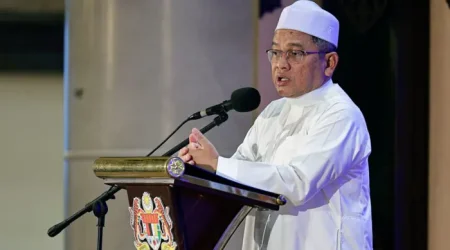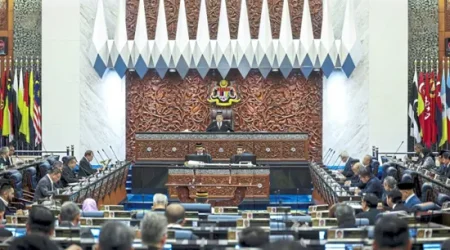Time for minimum wage above RM2,000
PETALING JAYA: The minimum wage for Malaysians should be set at RM2,102 as the current RM1,500 is too low for workers to sustain themselves and their families with, according to the latest report by United Nations Children’s Fund (Unicef) Malaysia.
The UN-backed study said its proposal for the new minimum wage was made in light of several current factors, including the high cost of living that is causing many Malaysians to struggle to make ends meet.

“The current level of minimum wage is too low and insufficient for workers.
“Taking into consideration key factors such as cost of living, poverty line income, median wage and productivity, our calculation shows that the minimum wage should be set at RM2,102 per month instead of RM1,500 currently.
“This revised new minimum wage is slightly lower than the living wage of RM2,700 as proposed by the Central Bank of Malaysia,” read the report that was published yesterday.
The study titled Living on the Edge: Longitudinal Study on Post-Covid-19 Impact Assessment Among Low-Income Households in Kuala Lumpur was conducted on 755 households living in 16 low-income flats in the city from Oct 10 to Nov 16 last year. The households had been part of a series of earlier studies in May 2020, September 2020, December 2020 and March 2021, which tracked the impact of the Covid-19 pandemic and its lockdowns on low-income families.
Among the key findings revealed in the report was that although families have recovered in terms of employment and income after the pandemic, poverty persisted with 41% experiencing absolute poverty and 17% facing hardcore poverty.
Hardcore poor refers to households with a monthly income of less than RM1,169, while those in absolute poverty have an income of less than RM2,208.
“This is especially prevalent among female-headed households and households headed by people with disabilities.
“Increasing living costs have exacerbated hardships, with eight out of 10 families struggling to meet basic needs, resulting in extreme choices such as reducing food intake.”
According to the report, one in three heads of households believe that their financial situation would continue to deteriorate as compared to one in four in 2021.
As of October 2023, 30% of the respondents said they believed their financial situation would worsen. 16% said it would stay the same, 31% were unsure and only 24% believed their situation would improve.
Out of the total households surveyed, 46% said their current financial situation was worse than last year, 38% felt it was the same as before and only 16% said things have improved for them this year.
The study, funded by Unicef and the UN Population Fund, revealed that 93% of the total households they spoke to admitted that they were currently affected by the high cost of living. Only 7% said they were not.
With that in mind, the report said it was essential for workers’ social protection to be improved, especially for those working in informal sectors and were not protected by the Employees Provident Fund (EPF) and Social Security Organisation (Socso).
About 40% of workers, according to the report, did not have employment-based social protection.
“As for those who are self-employed, 92% are without such protection, mostly women.
“This lack of social protection exposes them to heightened vulnerability during economic shocks, making it more challenging to withstand financial hardship.
“It must be mandatory for all workers to be covered by EPF and Socso to protect them against injury, unemployment and inadequate or no income during old age.”













Leave a Reply